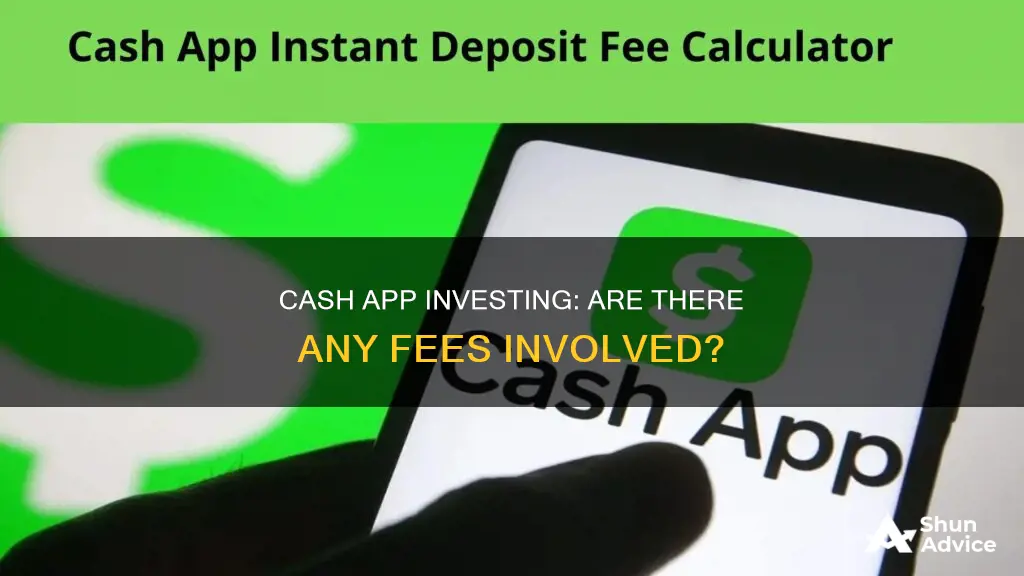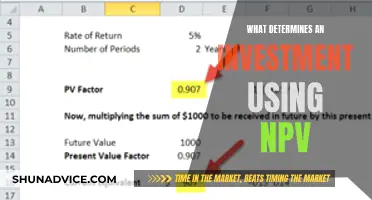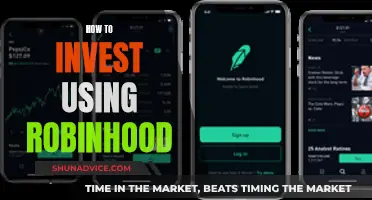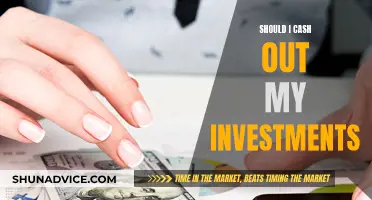
Cash App is a financial platform that allows users to send and receive money, get a debit card, and receive direct deposits. The app also offers a service called Cash App Investing, which allows users to buy and sell stocks and Bitcoin. While Cash App Investing accounts are free to open, require no minimum balance, and charge no commission fees, there are some fees that users should be aware of. For example, there are fees charged by government agencies such as the SEC and FINRA, and there may be a fee for buying or selling Bitcoin. Additionally, Cash App charges a fee for instant transfers and ATM withdrawals. However, standard transfers and direct deposits are typically free. Overall, while there are some fees associated with using Cash App, it is possible to use the platform without incurring any charges.
| Characteristics | Values |
|---|---|
| Account opening fee | Free |
| Minimum balance requirement | None |
| Commission fees | None |
| Regulatory and government fees | Required by agencies such as the SEC and FINRA |
| Trading activity fee (TAF) | $0.000166 per share sold |
| Securities and Exchange Commission (SEC) fee | $27.80 per $1 million of principal |
| Outbound stock transfer fee | Yes |
| Instant transfer fee | 0.5% - 1.75% |
| Minimum instant transfer fee | $0.25 |
| ATM withdrawal fee | $2.50 |
| Credit card fee | 3% |
| Bitcoin withdrawal fee | Depends on blockchain congestion |
| Bitcoin network fee | Listed before transaction completion |
What You'll Learn
- Cash App Investing accounts are free to open and don't charge commission fees
- Cash App does not charge a fee for standard transfers to a linked bank account
- There is a fee for instant transfers to a linked bank account
- Cash App does not charge a fee for sending money
- There is a fee for buying or selling Bitcoin

Cash App Investing accounts are free to open and don't charge commission fees
While there are no account fees, it's important to note that there may be some fees associated with specific types of transactions. For example, while Cash App does not charge any fees for buying or selling stocks, there may be a fee for buying or selling Bitcoin or other cryptocurrencies. These fees are based on market conditions and can fluctuate, typically ranging from 2% to 3% of the transaction amount.
Additionally, Cash App Investing accounts are subject to the same regulatory and government fees as other brokerages. These fees are charged by government agencies such as the Securities and Exchange Commission (SEC) and the Financial Industry Regulatory Authority (FINRA) and are disclosed before finalizing any trades. While Cash App does not benefit financially from these fees, they are an important consideration when investing through the platform.
Another fee to consider is the ATM withdrawal fee. Cash App charges a fee of $2.50 for each ATM withdrawal, and this is in addition to any fees charged by the ATM operator. However, this fee can be waived if the user receives direct deposits of at least $300 per month into their Cash App account.
Overall, Cash App Investing accounts offer a low-cost way to get started with investing, with no account fees or commissions. While there may be some fees associated with specific types of transactions or regulatory requirements, these are generally disclosed and should not come as a surprise to users.
Best Places to Invest Your Cash Today
You may want to see also

Cash App does not charge a fee for standard transfers to a linked bank account
Cash App is a financial services platform owned by Block, Inc. It is a peer-to-peer payment app that allows individuals to send, receive and invest money. The app is not a bank but provides banking services and debit cards through its bank partners.
If a user needs their money sooner, they can opt for an instant deposit. This service is not free and costs 0.5% to 1.75% of the total amount transferred, with a minimum charge of $0.25. Instant deposits are usually available within minutes.
There are also no fees for sending money from a Cash App account, linked debit card or bank account. However, depositing paper money to a Cash App account at a participating retailer incurs a $1 fee, and sending money from a credit card has a 3% fee.
Cash App Investing accounts are free to open and do not require a minimum balance to be maintained. There are no commission fees for buying or selling trades, but there are fees required by government agencies such as the SEC and FINRA. These fees are charged on all sell orders by FINRA and the SEC and are passed along to the regulatory agencies.
Securities Trading: Part of Investing Cash Flow?
You may want to see also

There is a fee for instant transfers to a linked bank account
Cash App is a financial services platform owned by Block, Inc. It is a peer-to-peer (P2P) payment app that allows users to send, receive, and invest money. The app is free to download and create an account, and there are no account, maintenance, or annual fees. However, there is a fee for instant transfers to a linked bank account.
The fee for instant transfers from a linked bank account or debit card ranges from 0.5% to 1.75% of the transfer amount, with a minimum fee of $0.25. This fee is charged per transaction and is in addition to any ATM fees that may be incurred. While instant transfers come with a fee, standard transfers to a linked bank account are free and typically take one to three business days to complete.
It's important to note that Cash App does not charge any fees for sending or receiving money when using a linked bank account, debit card, or the Cash App balance. The fee only applies to instant transfers. Additionally, there are no fees for opening or maintaining an investing account with Cash App, and there are no commission fees on trades. However, certain government agencies may charge fees for trades, which will be disclosed before finalization.
To avoid the instant transfer fee, users can opt for a standard transfer, which is free and only takes a few business days. Users can also request a Cash Card, which is a free debit card connected to their Cash App balance. This allows users to access and spend their Cash App balance without transferring it to a bank account or incurring instant transfer fees.
Cash Investments: Revenue or Not?
You may want to see also

Cash App does not charge a fee for sending money
Cash App is a financial services platform owned by Block, formerly known as Square. It is a peer-to-peer (P2P) payment app that allows users to send, receive, and invest money. The app is free to download and does not charge any account, maintenance, or annual fees.
One of the most appealing features of Cash App is that it does not charge a fee for sending money from a user's available balance, linked debit card, or bank account. This means that users can easily transfer funds to friends, family, or businesses without incurring any additional costs.
For example, if you want to send money to a friend for a teacher gift or to a business for a Facebook Marketplace purchase, you can do so directly from your Cash App balance or linked debit card/bank account without paying any fees. This makes Cash App an excellent tool for small or informal payments, as well as for splitting bills or sending money to someone in an emergency.
In addition to its fee-free money transfers, Cash App also offers a variety of other services, including direct deposits, ATM withdrawals, investing in stocks and Bitcoin, and a Cash App Card (a debit card tied to your Cash App account). While some of these services may incur fees, Cash App's free and convenient money transfer feature makes it a popular choice for users who want to send and receive money easily and quickly.
It's important to note that while Cash App does not charge a fee for sending money, there may be fees associated with other types of transactions, such as instant transfers, credit card payments, or ATM withdrawals. However, users can avoid these fees by opting for standard transfers, using a linked bank account or debit card instead of a credit card, and utilising direct deposits to waive ATM fees.
Investments and Cash Equivalents: What's the Real Difference?
You may want to see also

There is a fee for buying or selling Bitcoin
While Cash App does not charge any fees for buying or selling stocks, there is a fee for buying or selling Bitcoin. This is because Cash App Investing does not trade Bitcoin. The fee depends on the amount of blockchain congestion and will be listed before you finish the transaction. The fee will also be summarised on the withdrawal confirmation screen before you complete the transaction, allowing you to make adjustments to avoid a Bitcoin withdrawal fee.
The fee typically hovers between 2% and 3%, but it can be as low as 0.75% for larger trades. This fee is separate from the $2.50 fee Cash App charges for withdrawing money from an ATM. This ATM fee is waived if you receive at least $300 in monthly direct deposits.
Cash App Investment Options: Where to Put Your Money
You may want to see also
Frequently asked questions
Cash App does not charge a fee to open or maintain an investing account, nor does it charge fees per trade. However, there may be fees charged by government agencies and brokerages for trading or administration.
The Securities and Exchange Commission (SEC) and the Financial Industry Regulatory Authority (FINRA) charge a fee to the broker dealer for sell orders only. The trading activity fee (TAF) is charged to brokerage firms by FINRA to cover the costs of regulation, supervision, and operation. The SEC fee is charged by the US treasury to cover the cost of regulating markets and dealers.
No, Cash App does not take a portion of government or regulatory fees. However, other fees may apply, such as fees for outbound stock transfers.
There are no fees for buying or selling stocks on Cash App. However, there may be fees for buying or selling Bitcoin.
Yes, there may be fees for expedited withdrawals when buying or selling Bitcoin. There may also be fees for outbound stock transfers and other external account transfer fees.







